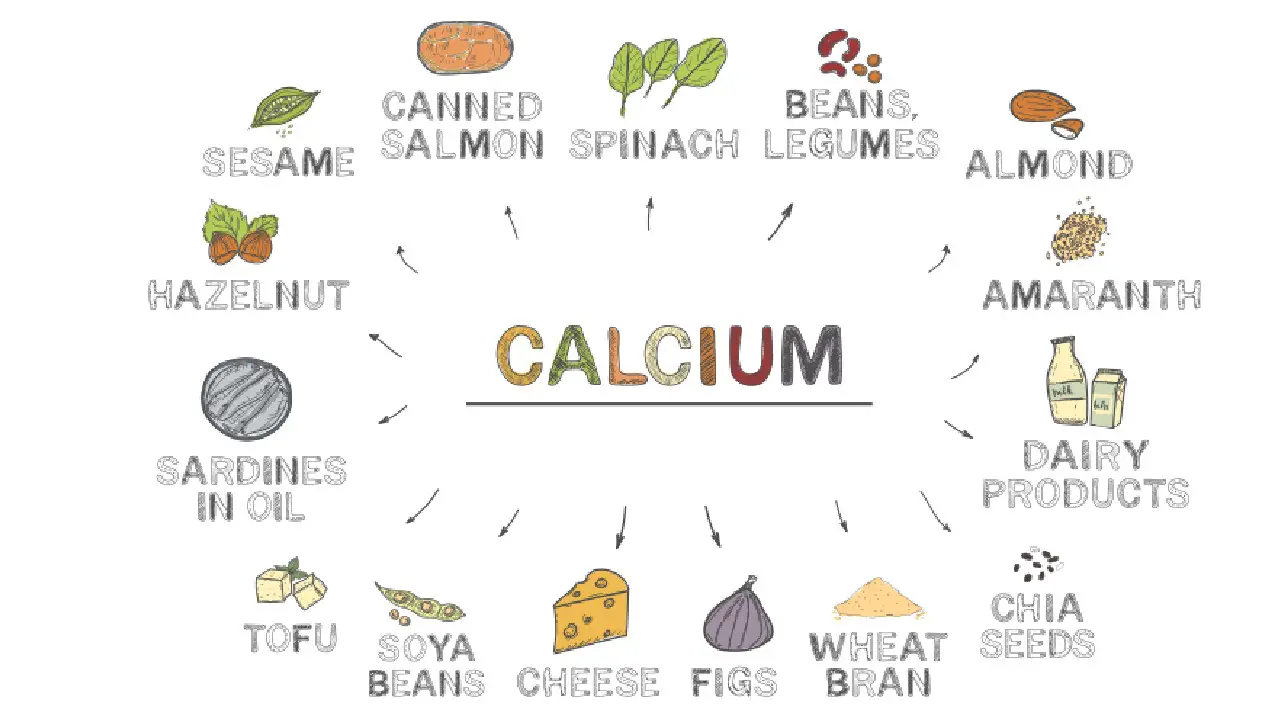
Experts debunk common calcium myths, emphasising food sources over supplements. A balanced diet with calcium, vitamin D, and magnesium is key for bone health. (Source: careinsurance.com)
Lifestyle News: Calcium is essential for strong bones, but many misconceptions exist about its sources and benefits. Myths like 'dairy is the only source' and 'supplements are best' confuse people. Experts stress that a balanced diet with natural food sources is the ideal way to maintain calcium levels. Understanding the role of other nutrients like vitamin D is key to optimal bone health.
Calcium, an essential mineral for bone health, is widely regarded as a crucial nutrient. Yet, despite its importance, there are several myths surrounding its consumption that often mislead individuals. From misconceptions about the need for dairy to myths about calcium supplements, many people continue to rely on false information. These myths not only hinder people from adopting proper dietary habits but can also lead to health issues. To clear the confusion, health experts are stepping forward to separate fact from fiction and offer accurate guidance on calcium intake.
One of the most common myths about calcium is that dairy products are the only effective sources of the mineral. People often believe that if they don't consume milk, cheese, or yoghurt, they won’t get enough calcium. However, experts assert that while dairy is a good source, it is not the only option. Non-dairy foods such as leafy green vegetables (spinach, kale), nuts, seeds, fortified plant-based milk (almond, soy), and certain fish like sardines and salmon can provide ample calcium. For individuals who are lactose intolerant or vegan, these alternatives are not just sufficient but necessary.
Another common misconception is that calcium supplements are an easy and reliable way to ensure adequate calcium intake. However, experts warn that while supplements can help, they should not be the first choice for calcium intake. Excessive reliance on supplements can lead to health complications, including kidney stones or heart issues. “It's always better to get your calcium from food,” says Dr Asha Verma, a nutritionist at a leading health centre. "Natural sources of calcium are better absorbed by the body than supplements. Plus, food sources offer additional nutrients that work in synergy to promote overall health.”
Many people think that calcium is only necessary in childhood and adolescence for growing bones and that once you reach adulthood, your calcium needs decrease. This is entirely false. Experts emphasise that calcium is crucial for all age groups, including older adults. As we age, bones become more prone to thinning and osteoporosis, making calcium intake even more critical. For adults, particularly post-menopausal women and elderly individuals, maintaining sufficient calcium levels is essential to prevent bone density loss and fractures. "Calcium plays a continuous role in bone regeneration, no matter the age," says Dr Rajeev Mehta, an orthopaedic surgeon.
While calcium is a key player in bone health, it is not the only nutrient that supports bone structure. Many individuals mistakenly believe that simply consuming calcium will guarantee strong bones. However, without other essential nutrients, such as vitamin D and magnesium, calcium may not be effectively absorbed and utilised by the body. Vitamin D helps the body absorb calcium efficiently, and magnesium plays a critical role in the formation of bone matrix. Dr. Mehta explains, “Calcium works best in synergy with these nutrients. A balanced diet rich in all essential vitamins and minerals is crucial for optimal bone health.”
The myths surrounding calcium consumption can be easily debunked with the right knowledge. By relying on expert advice and current research, individuals can make better choices about their calcium intake. Rather than relying solely on dairy or supplements, a diverse, well-rounded diet with whole foods that provide calcium, vitamin D, and magnesium is the most effective approach. It is also important to remember that a healthy lifestyle, including regular physical activity and weight-bearing exercises, contributes significantly to bone health. In conclusion, the best way to maintain strong bones and overall health is to focus on accurate, science-backed information. Ensuring a balanced diet, regular check-ups, and consulting with health experts will lead to a healthier and more informed approach to calcium and bone health.





Copyright © 2026 Top Indian News
